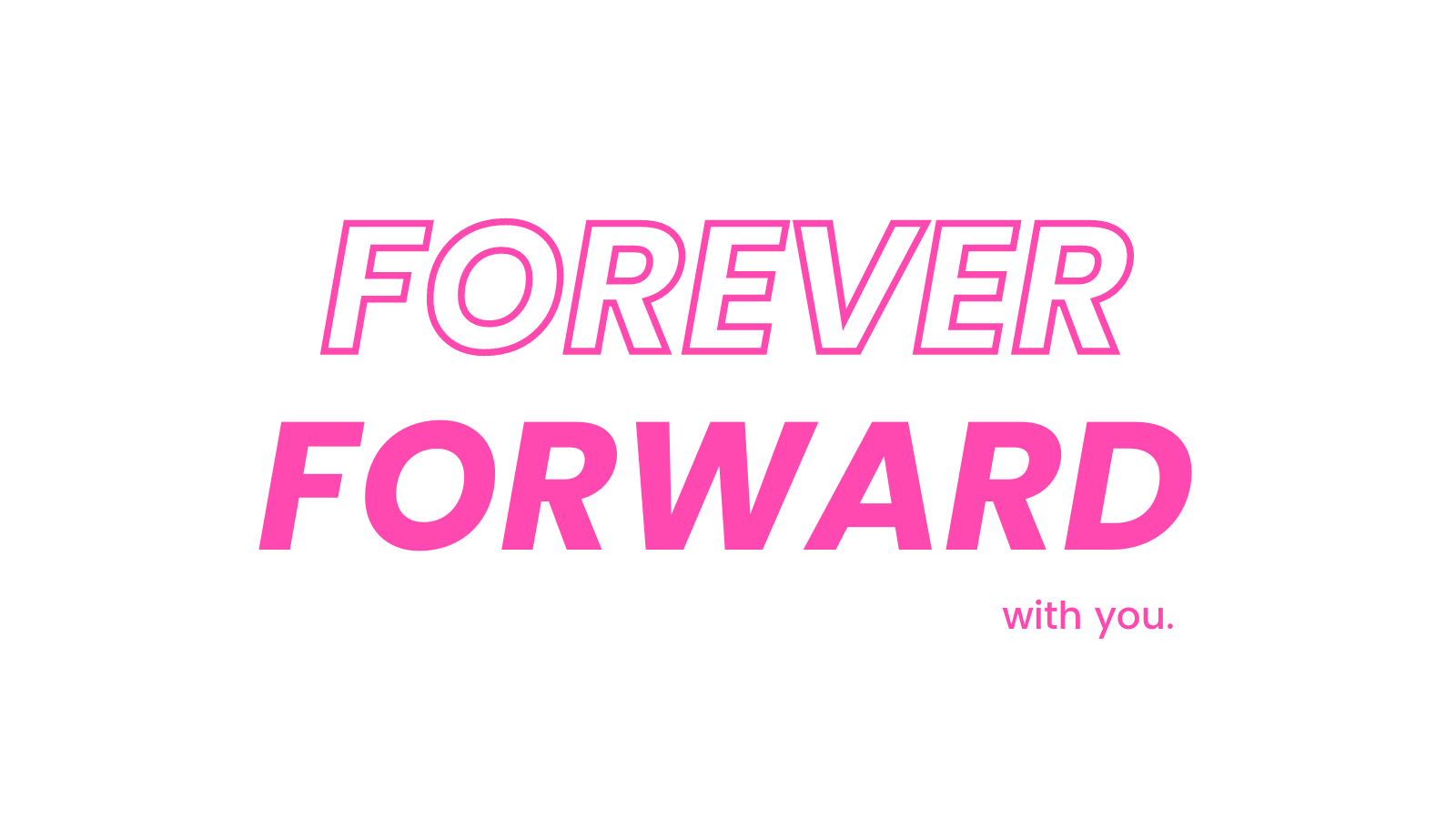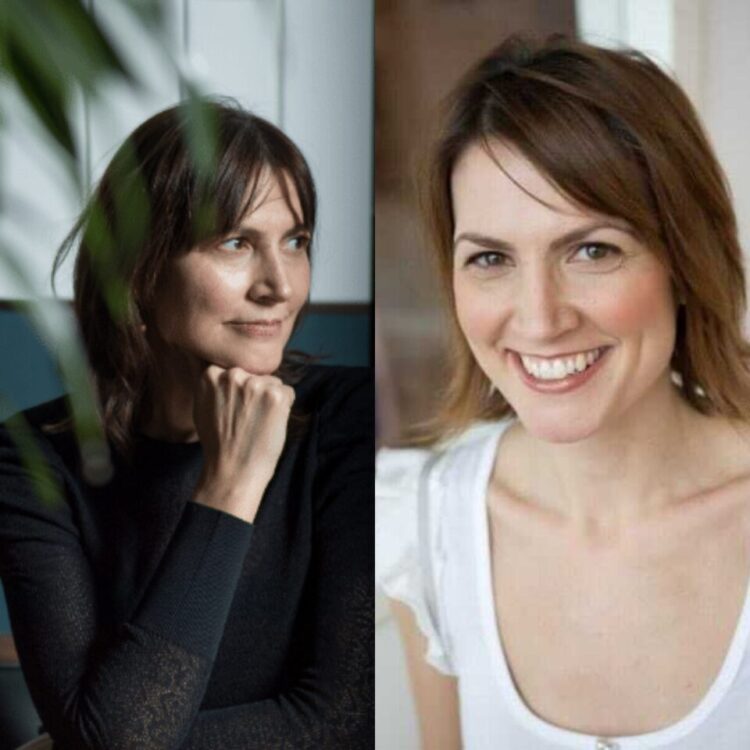Forever Forward, With You — BCAM 2021
8 MINS to read

After an intense twenty months comes our 20th anniversary and inspiration to lead the next phase of our movement. Yes, Rethink is celebrating a milestone this year — 20 years of “rethinking” breast cancer. The past twenty months have been even harder for me than the first twenty months of launching Rethink. It’s been as stressful as non-stop. I’ve been back on the exact same teak dining room table I’d worked from in Rethink’s first year. It’s also been as exciting. Maybe even more exciting. In 2001, we launched a new breed of breast cancer charity and in 2021, we are doing that again, because we are always evolving.
If you know me, and especially if you have been on the Rethink team, you know that I’m true to my Instagram tagline, which is “equal parts over-thinker and plunger-in-er.” I don’t know if that’s been part of our formula for success as a change-making organization, but our approach has been connecting, listening, collecting insights, connecting the dots to identify a gap in care — then just going for it. Sometimes what we create needs its own “rethink” or needs to evolve because the needs of the community have changed, or the world has changed. This anniversary milestone has forced me to think about all the evolutions of our movement and go back to the beginning for a moment.
When I was 22, my mom passed away from metastatic breast cancer. I was her youngest child, her only daughter and we were very close. We were each other’s helpers, allies in a house full of men. She was the quiet, calming, stabilizing centre of our lives, leading and guiding us through example and unconditional love. My grandmother also had breast cancer, but it was my mom’s loss that propelled my search for information about my own risk factors and my quest for ways to get involved or help in some way. What I found was drab, clinical pamphlets designed for women over 60 and the early days of “pink October” with rhinestone angel pins, pink teddy bears and everything from golf socks to saccharinely sweet inspirational plaques decked out in pink ribbons. Having recently taken my first few women’s studies courses, young MJ was appalled at the infantilization of women with breast cancer. And while I was a Gen Xer interested in indie film, fashion and music, truthfully, I don’t think my mom would have wanted any of this “awareness” stuff. In any case, the bigger concern for me was that the pamphlets were super scary. I was a young person actively seeking information about risk reduction and early detection and the materials were off-putting. I would pick them up but then shove them in a drawer. They certainly weren’t going to grab the attention of my friends and peers who hadn’t been personally affected by breast cancer.
So that was my first “ah ha” moment. And I guess English majors can be entrepreneurial too. I spent the rest of my 20s volunteering, raising funds and working for a grassroots charity. With so many in my personal circle working in fashion, music, film production and advertising, we brought that vibe to our efforts. I also had great family connections to healthcare through my dad, a doctor and professor of medicine, and my oldest brother, a hematopathologist and major researcher in blood cancers. So, from the very beginning, Rethink’s energy andenthusiasm was always merged with science and an evidence-based approach. This simple idea and clear gap—that young people weren’t being effectively engaged in the cause or considering their breast health—really resonated. People were eager to help or connect me to people who’d help. Women like Sarah Crawford, head of public affairs for CHUM and a leading female creative team, Elspeth Lynn and Lorraine Tao, who had started a creative agency called ZiG, and their brilliant young strategic planner Alison Gordon, who later left her job as a rising star in advertising to join me as my co-pilot in leading Rethink. Alison and I shared a tiny office for 13 years, co-creating everything from perfectly crafted email pitches to an International film festival. We could exchange a quick glance in a meeting (or not even have to) and know exactly what each other was thinking. Maybe someday we’ll write a book about what makes a truly powerful partnership, but I think our meeting was luck and just happened to be the perfect, magical mix. Alison was one of the first people I shared my vision with twenty years ago and last year, she was the first person to hear (and talk through) my vision for Rethink’s future.
But back to the beginning for a minute. In 2001, I brought together a group of innovative, energetic, and creative minds to found Rethink Breast Cancer, with a goal of putting young people concerned about and affected by the disease in the spotlight for the very first time. We kind of came out of nowhere. I had worked my passion to convince the Council of Fashion designers of America that Rethink should bring the globally recognized fundraising campaign Fashion Targets Breast Cancer to Canada in fall of 2001, when we were only about 6 months old. That whirlwind of launching an organization and a high-profile national campaign while also applying for charitable status and developing educational resources for young women all in time for breast cancer awareness month was completely insane and thank goodness, I was naïve to what was actually involved.
Over the coming weeks, I’m going to tell the Rethink story and how we evolved from being known for “branding a cause” and creating buzz to get young people educated and engaged in fundraising to being known for driving impact and making change to improve breast cancer outcomes. We have evolved from being the “hip, cool” boutique breast cancer charity to one that is using its influence to open doors for others and make system changes that help people with cancer live better and longer.
If I were to try and tell the story of all the people who helped make Rethink what it is today, the list of advisors, supporters, team members, volunteers, funders and partners would have you scrolling so long your thumb would cramp. So, instead, I’m going to tell the story of our evolution by highlighting six young women with breast cancer from our community who are connected to driving some of our most pivotal moments:
And while I’m going to highlight a few young women specifically, this milestone has me reflecting on all of the remarkable people in our community who have made and are making Rethink what it is – a place to connect, get support, feel seen and heard, and a place to give back to help others who are newly diagnosed.
Many of those we support later get involved in helping us create resources for other newly diagnosed women, advance research and even make policy change. What’s very difficult is that too many women that have been such an important part of shaping our direction and inspiring our evolutions are now gone. Well, physically gone, but very much the DNA of our organization. And they are on our minds and in our hearts as we celebrate this October and onwards.
I look forward to sharing about these six women and telling the story of what has come out of fostering spaces to connect, listen, empower and rethink breast cancer, together. Rethink started with my personal story, but it’s the personal stories of the people in our community that continue to drive Rethink forward. — MJ DeCoteau
MJ DeCoteau, Founder + Executive Director of Rethink Breast Cancer. At 22, after losing her mother to metastatic breast cancer, MJ was hard-pressed to find relevant information that was not scary and overwhelming about her own risk factors. She quickly realized that young people were in the dark about breast cancer simply because they weren’t being targeted by awareness campaigns and other efforts.
By 2001, she brought together a group of innovative, energetic, and creative minds to found Rethink Breast Cancer, putting young people concerned about and affected by the disease in the spotlight for the very first time. Today, MJ leads Rethink’s small but dynamic team of staff and volunteers dedicated to creating resources, campaigns, events, research, and advocacy initiatives that help young people live better and live longer.
